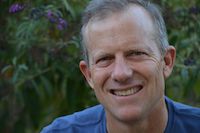
Pixabay
One particular conversation has happened numerous times. When I’m asked about what I do, I reply, “I’m involved with religion and science,” and I often hear a still-unexpected response, “Religion and science? That’s not for me—I’m not smart.”
It’s hard to know what to say next. I do tend to think that this dialogue requires our best thinking. But I’m also troubled by an implied resistance. Is faith and science for elitist, “heady” congregations only?
Felt Needs
In the world of shepherding churches, pastors often talk about “felt needs.” In that light, is the integration of Christian faith and mainstream science something that we, as people in the pew, feel we need? That’s the big question I’ve faced with my team as we’ve worked to bring science to church since 2010 through two large grants in the United States (Scientists in Congregationsand Science and Theology for Emerging Adult Ministries).
Being Quick to Listen
Maybe we’re speaking and not listening. I’ve learned that we have to listen to what people are actually asking for. Here’s an analogy with another “faith and” movement. A recent Christian Today article “God of the Second Shift” posed the question, “When we talk about faith and work, why are two-thirds of the workers missing?” Too often the movement ignores two-thirds of the American workforce, the working class.
Similarly, in faith and science we miss most of the congregation. Most churches aren’t situated near a university or in a science-saturated city. As this article notes, church attendance, at least in the United States, has stayed fairly steady for the college-educated in the past several decades, but has markedly declined for those without a college degree. Most importantly it concludes with the simple phrase, “Beginning to listen.”
Different Questions
And if we listen, maybe we’ll find that we don’t know the specific topics in science and faith that actually interest congregations. Scholars ponder the connection between the doctrine of creatio ex nihilo and quantum cosmology, or how Chalcedonian Christology relates to Bohr’s concept of complementarity. Despite how intensely interested I am, I’ve realized that it causes the eyes of many church members to glaze over. How about instead the studies that demonstrate a connection between smart phone usage and anxiety, or the between gratitude and happiness? That lands.
The Never Ending Reality of Warfare
There’s a recent book that just came across my desk with the apt subtitle, The Warfare Between Science and Religion: The Idea That Wouldn’t Die. How true that is. To paraphrase Mark Twain, reports of the end of the warfare—at least in the minds of the public—have been great exaggerated. When I do listen to the “person in the pew,” I hear concerns about apologetics and the legitimacy of Christian belief in an age of science and technology.
Despite what many who study this field believe about the “Draper and White thesis” and it died long ago, I still hear from all sides of the church that church members fear losing faith. For conservatives in the States, there’s also considerable alarm over the “e word,” evolution, that’s wound into this. “If I accept modern science, I’ll lose my Bible, Adam and Eve, and ultimately Jesus Christ.” But for liberals or mainliners who love science, the problem is frequently the presence of so many leading atheist scientists. I was speaking at an Evangelical Lutheran Church synod convocation this fall, and I heard this: “My daughter loves science, but since so many prominent scientists are atheists, she decided not to do church Confirmation because she wants to be a scientist.”
Key Influencers
In order to be heard, we also have to figure out how to engage the influencers of the congregation. So much of the work of bringing together faith and science requires not primarily intellectual and rational discourse, but engagement with group influencers or endorsers and group identity.
The integration of mere Christianity and mainstream science isn’t simply about knowledge, but, as researchers have discovered, one’s “intuitive cognitions” or “feelings of certainty” make the decision about acceptance of evolution, for example, and override rational concerns. As surprising as it sounds to me (since I’ve been a pastor, I wondered about how much people really listen to us) a ministry leader’s voice offers feelings of certainty that are central to defining a social world and thus of what can be thought or not. Here I turn to Calvin College sociologist Jonathan Hill, who (in his book, Emerging Adulthood and Faith) noted that friends, family, pastor, and other trusted voices are critical for opening college to explore mainstream science. “For most students, then, it matters little what their professor teaches… What their friends, parents, and pastor thinks is going to be far more important, because their social world is inextricably tied up with these significant others.” We believe things because those around us make them believable.
Translators Please Apply
Finally, it will require those of us who are specialists to translateour concept and especially to use clarity and simplicity in language. C. S. Lewis, who to many is the brilliant Christian apologist and author of The Chronicles of Narnia,had a day job of being a prominent Oxford and Cambridge scholar. Lewis learned how to translate, among other means, through his talks to the Royal Air Force during World War II as well in speaking about religion to a broad audience through the BBC—which, of course, later became his most well-read nonfiction book, Mere Christianity. As he later wrote, “My task was therefore simply that of a translator—one turning Christian doctrine, or what he believed to be such, into the vernacular, into language that unscholarly people would attend to and could understand.” Translation, for Lewis, required less nuance in language and simpler sentence structure. For many of us, it also requires simplifying ideas, even rounding off some edges of scholarly controversy.
Lewis observed, “People praise me for being a translator. But where are the others? I wanted to start a school of translation.” My hope is to be part of translating this conversation of faith and science to the wider church so that talking about science becomes just something congregations naturally do. But even more, I’m looking to start a movement of translation.

© G Cootsona
Greg Cootsona is a lecturer in religion, philosophy, and humanities at California State University, Chico. If you have comments, feel free to connect with him atgreg@cootsona.net. Greg blogs at cootsona.blogspot.comand tweets at GregCootsona




